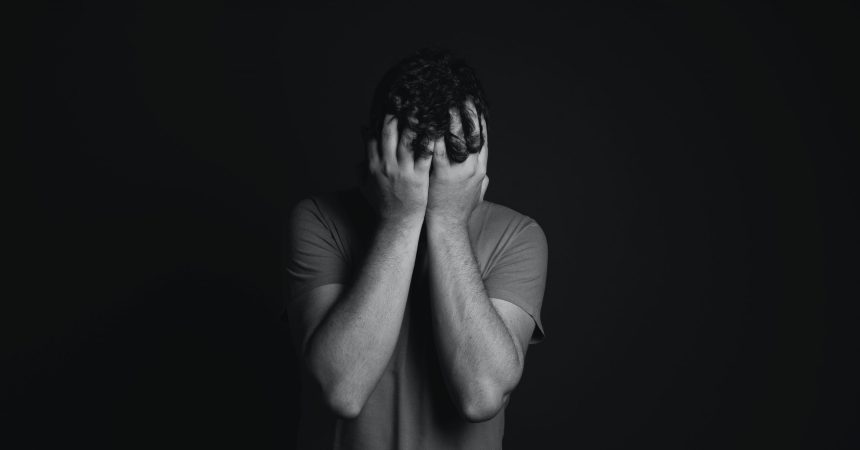Mental illnesses are common in the United States. Nearly one in five U.S. adults live with a mental illness (52.9 million in 2020). Certain events can trigger a mental health illness, such as:
- Losing a job or career
- Relationship problems
- Financial issues
- Bereavement
The majority of individuals who suffer from mental health issues will experience mild to moderate symptoms and conditions which can take the form of depression or anxiety issues. However, some individuals will experience severe mental health issues that can take the form as:
- Bipolar disorder
- Personality disorder
- Schizophrenia
How to understand the difference between normal mental health and mental health disorders? The lines can often become somewhat blurred; for example, if you are worried or scared of giving a speech to a large group of people, does this mean you have mental health issues such as social anxiety, or are you simply nervous?
What is mental health?
Mental health is the overall wellness of how an individual regulates their feelings, behavior, and thinking. A mental health disorder may become present if an individual begins to change patterns in their behavior or thinking, which ultimately disrupts their ability to function. A mental health disorder can start to affect how an individual:
- Maintains personal relationships
- Maintain family relationships
- Participate in vital activities
- Performance in an academic environment
- Function in any social setting
- Keep up with the intelligence level expected at your age
What does a mental health decline mean?
When an individual’s mental health declines for some time, they may not be able to function at the regular daily rate that they once were. Everyday activities become incredibly tiring to complete; unexplained mood changes can occur, erratic shifts in emotions, unusual behavior actions, and the inability to cope with any problem that may come their way.
If an individual is unaware of their mental health illness and how to deal with the symptoms, this can often lead to the individual developing more severe mental health disorders. Seeking help is a vital step when it comes to mental health illnesses. Opening up to friends and family, trusted loved ones, support groups, or professionally seeking mental health are all great ways to initiate the first step to treating a mental health disorder.
What causes mental health illnesses
A wide array of reasons can cause mental help problems. For most individuals, there is a combination of factors that would have happened throughout their life. Each one of us is affected differently by our experiences; however, the following factors are known to play a role in individuals developing or being triggered, resulting in mental health issues:
- Childhood abuse, ongoing trauma, or neglect
- Experiencing discrimination which can include racism
- Severe long-term stress
- Living with long-term physical health conditions or illnesses
- Drug and alcohol misuse
- Homelessness
- Social disadvantages such as poverty or extreme debt
- Domestic violence
- Loneliness
- Living as a long-term carer for someone
- Significant trauma can include:
- Military combat
- Serious incident in which you feared for your life
- Victim of a violent crime
Lifestyle factors can too affect individual mental health, such as their diet and the amount of sleep they get if they enjoy their job.
What are the warning signs of mental health conditions?
If you or a loved one has begun to experience the following signs, we advise you to seek medical help immediately. It is always best to be aware of the warning signs associated with mental health illnesses; early diagnosis is essential to creating a treatment plan and halting the mental health illness. Below we have listed some of the warning signs and symptoms of mental health illnesses:
- Suicidal thoughts
- Changes in sex drive
- Feelings of loneliness or severe sadness
- Significantly changes in their mood
- Unable to cope with any form of problem
- Poor performance at work or school
- Temper tantrums
- Feelings of tiredness
- Low levels of energy
- Agitated, hostile, and violent
- Social withdrawal from loved ones
- Changes in appetite
- Changes in sleeping patterns
- Detachment from reality such as hearing and seeing things that do not exist
- Feeling teary
- Becoming paranoid or suspicious
- Having flashbacks to possible traumatic events
Understanding the common signs of mental health will help you and your loved ones if they are either battling with mental health or currently dealing with a mental health decline.
How is mental health diagnosed?
If an individual is concerned about their mental health and decides to go to the doctors, they will first look into factors such as:
- Your current experiences
- How you are feeling
- How you are behaving
- Your thinking patterns
- How long you have been experiencing the symptoms that are worrying you
- The impact your present symptoms are having on your life
Furthermore, the medical professional may ask questions about your mood and thoughts, which can be requested via a questionnaire. Your diagnosis will be based on what you specifically describe, so do not ever hold back on how you are feeling. It is best to be completely honest to receive the most effective treatment.
Additionally, mental health professionals will look into your family’s medical history to see if there are any known mental health disorders. Each mental health illness has its own signs and symptoms to look out for. To ensure you keep yourself and your loved ones as safe as possible, it is vital to know and have a basic understanding of the tell-tale signs of each mental health illness. Many individuals go through life with severe visible mental health signs and never seek help. They will adapt their lifestyle to cater to their mental health illness.
With the right medical help and support, everyone can thrive, even when dealing with a mental health illness. Treatment options are available; while some mental health illnesses can not be cured, you can take medicine or attend therapy sessions to help control the condition.






